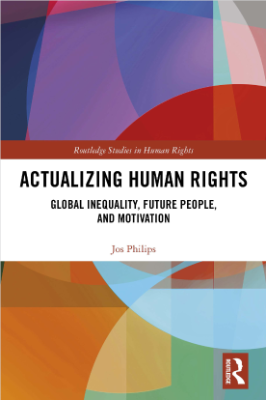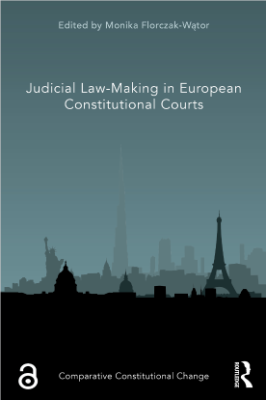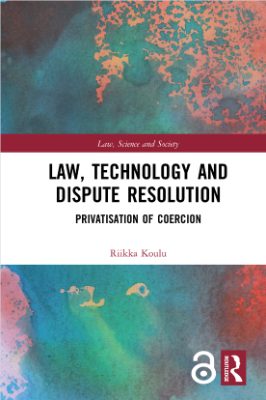
|
Actualizing Human Rights: Global Inequality, Future People, and Motivation
This book argues that ultimately human rights can be actualized, in two senses. By answering important challenges to them, the real-world relevance of human rights can be brought out; and people worldwide can be motivated as needed for realizing human rights.
Taking a perspective from moral and political philosophy, the book focuses on two challenges to human rights that have until now received little attention, but that need to be addressed if human rights are to remain plausible as a global ideal. First, the challenge of global inequality: how, if at all, can one be sincerely committed to human rights in a structurally greatly unequal world that produces widespread inequalities of human rights protection? Second, the challenge of future people: how to adequately include future people in human rights and how to set adequate priorities between the present and the future, especially in times of climate change? The book also asks whether people worldwide can be motivated to do what it takes to realize human rights. Furthermore, it considers the common and prominent challenges of relativism and of the political abuse of human rights.
This book will be of key interest to scholars and students of human rights, political philosophy and, more broadly, political theory, philosophy and the wider social sciences.
|

|
Law and Ecology: New Environmental Foundations
Law and Ecology: New Environmental Foundations contains a series of theoretical and applied perspectives on the connection between law and ecology, which together offer a radical and socially responsive foundation for environmental law. While its legal corpus grows daily, environmental law has not enjoyed the kind of jurisprudential underpinning generally found in other branches of law. This book forges a new ecological jurisprudential foundation for environmental law – where ‘ecological’ is understood both in the narrow sense of an ecosystemic perspective on law and in the broad sense of critical self-reflection of the mechanisms of environmental law as they operate in a context where boundaries between the human and the non-human are collapsing, and where the traditional distinction between ecocentrism and anthropocentrism is recast. Addressing current debates – including the intellectual property of bioresources; the protection of biodiversity in view of tribal land demands; the ethics of genetically modified organisms; the redefinition of the ‘human’ through feminist and technological research; the spatial/geographical boundaries of environmental jurisdiction; and the postcolonial geographies of pollution – Law and Ecology redefines the way environmental law is perceived, theorised and applied. It also constitutes a radical challenge to the traditionally human-centred frameworks and concerns of legal theory.
|
|
Feminismos y Derecho: Un diálogo interdisciplinario en torno a los debates contemporáneos
El feminismo es, ante todo, una cuestión de derechos. Si los derechos humanos se cimientan en la idea básica de dignidad común a todas las personas, es claro que el sexo con el que se nace no debería predeterminar las oportunidades, responsabilidades, roles, o derechos a los que se puede aspirar en la vida. Y sin embargo, a pesar de los logros fundamentales que ha tenido, la lucha de las mujeres sigue siendo por establecer un modelo de relaciones de género que haga realidad para ellas la promesa de la igualdad. Con el fin de contribuir a las reflexiones que hagan posible la transformación de los valores, normas y prácticas sociales, necesaria para acabar con la desigualdad estructural entre hombres y mujeres, tengo el gusto de presentar este libro que busca visibilizar algunas de las más importantes discusiones sobre género en la actualidad.
|
|
|

|
Judicial Law-Making in European Constitutional Courts
This book analyses the specificity of the law-making activity of European constitutional courts. The main hypothesis is that currently constitutional courts are positive legislators whose position in the system of State organs needs to be redefined. The book covers the analysis of the law-making activity of four constitutional courts in Western countries: Germany, Italy, Spain, and France; and six constitutional courts in Central–East European countries: Poland, Hungary, the Czech Republic, Slovak Republic, Latvia, and Bulgaria; as well as two international courts: the European Court of Human Rights (ECtHR) and the Court of Justice of the European Union (CJEU). The work thus identifies the mutual interactions between national constitutional courts and international tribunals in terms of their law-making activity. The chosen countries include constitutional courts which have been recently captured by populist governments and subordinated to political powers. Therefore, one of the purposes of the book is to identify the change in the law-making activity of those courts and to compare it with the activity of constitutional courts from countries in which democracy is not viewed as being underthreat. Written by national experts, each chapter addresses a series of set questions allowing accessible and meaningful comparison. The book will be a valuable resource for students, academics, and policy-makers working in the areas of constitutional law and politics.
|
|
|

|
Law, Technology and Dispute Resolution: Privatisation of Coercion
The use of new information and communication technologies both inside the courts and in private online dispute resolution services is quickly changing everyday conflict management. However, the implications of the increasingly disruptive role of technology in dispute resolution remain largely undiscussed. In this book, assistant professor of law and digitalisation Riikka Koulu examines the multifaceted phenomenon of dispute resolution technology, focusing specifically on private enforcement, which modern technology enables on an unforeseen scale. The increase in private enforcement confounds legal structures and challenges the nation-state’s monopoly on violence. And, in this respect, the author argues that the technology-driven privatisation of enforcement –from direct enforcement of e-commerce platforms to self-executing smart contracts in the blockchain –brings the ethics of law’s coercive nature into the open. This development constitutes a new, and dangerous, grey area of conflict management, which calls for transparency and public debate on the ethical implications of dispute resolution technology.
|
|
|
Conflictos entre derechos: ensayos desde la filosofía práctica
Como parte de la línea de investigación sobre metodologías de la adjudicación constitucional se presenta la obra Conflictos entre Derechos. Ensayos desde la filosofía. Los autores reunidos en ella tocan diversos temas en torno a los derechos y los conflictos entre derechos; cómo se configuran esas disputas; en qué sentido el choque entre opciones respaldadas por razones institucionales y prácticas se resuelve racionalmente; y qué relación hay entre la respuesta racional al conflicto y la legitimidad de las decisiones jurídicas. La obra se compone de textos inéditos en español desde diferentes posturas jurídico-filosóficas, siendo un aporte para el lector hispanohablante interesado en los fenómenos normativos relacionados con los derechos.
|
|
|
|
|